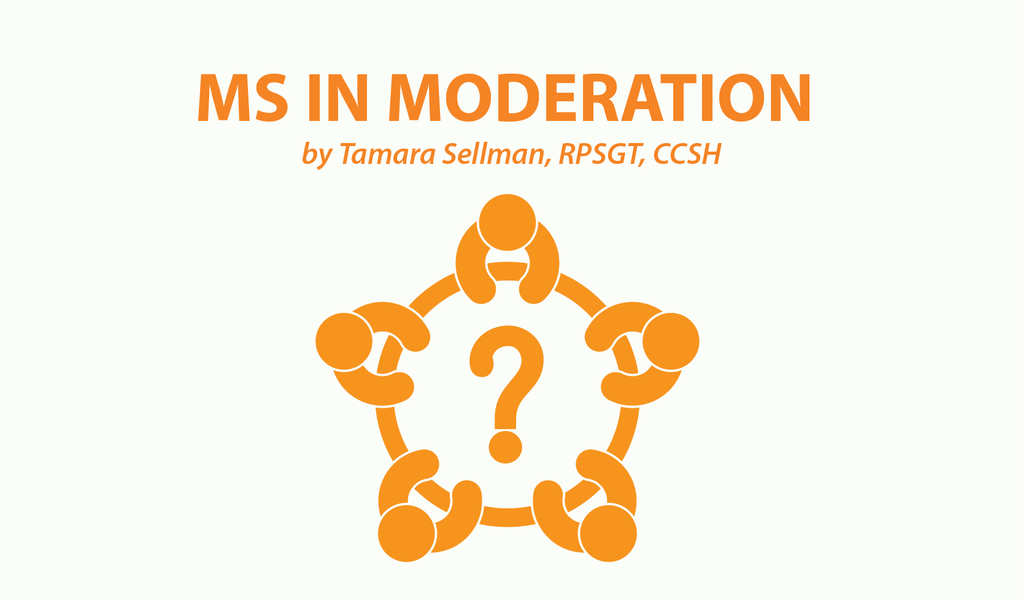The MS Alphabet: Swallowing Reflex, Sertraline, Sclerosis, and Other ‘S’ Words (Part 1 of 5)
Written by |


Editor’s note: Tamara Sellman continues her series on the “MS alphabet” with this column referencing terms starting with the letter “S.” First in a series of five.
Symptoms of MS
Spontaneous voiding
This is another term for incontinence — one’s inability to control the bladder or bowel.
People with MS experience spontaneous voiding as the result of a neurogenic bladder. The most common treatments for spontaneous voiding include the use of medications, catheterization, neurostimulation devices, surgery, and even Botox injections, in some cases.
MS abbreviations
Symbol digit modalities test (SDMT)
For many people with MS, challenges to cognitive function are symptomatic of their disease course, especially as it relates to the speed with which they can process thoughts and access memories.
The symbol digit modalities test (SDMT) is used to help determine the severity of one’s cognitive dysfunction. This test is used to assess cognitive function related to divided attention, motor speed, visual scanning, and tracking.
The tested patients are given a reference key and are then asked to pair numbers and geometric figures, either by voice or in writing, over a 90-second period.
The test is repeated several times but it normally takes about five minutes to complete. It has been found to be particularly effective in identifying reduced thought processing speed in those with MS.
The SDMT may be applied as part of a larger cognitive assessment by specialists when a patient’s cognitive baseline requires measurement, as is the case for those needing to prove disability as the result of cognitive dysfunction caused by MS.
Common MS terms
Sclerosis
Sclerosis refers to the hardening of body tissues.
The term multiple sclerosis refers to the scarred (sclerotic) brain tissue in the central nervous system resulting from demyelination, the destruction of the myelin coating on the nerve cells.
The biology of MS
Swallowing reflex
We initially develop our swallowing reflex as newborns. Swallowing itself is a three-part process:
- Oral phase: A substance, such as food, is introduced into the mouth. Saliva is released to help break it down before pushing it further back into the throat. Nerves located in the brainstem, called the cranial nerves, control the muscles during the oral phase.
- Pharyngeal phase: The substance prepared for swallowing in the oral phase moves into the back of the throat (the pharynx). Sensory nerves activate the involuntary swallowing reflex, which helps move the substance further into the esophagus (commonly referred to as the food pipe), using rhythmic contractions of the pharyngeal muscles. This also involves the involuntary closure of the trachea (commonly referred to as the windpipe) by the epiglottis and vocal cords, which helps us avoid swallowing substances “down the wrong pipe.”
- Esophageal phase: As the substance enters the esophagus, another pipe-like structure operated by muscular contractions, it is passed into the stomach by way of the coordination of the glossopharyngeal nerve, the vagus nerve, and nerve fibers that belong to the sympathetic nervous system.
Some people with MS experience problems with swallowing that relate to nerve damage in the brain that compromises the coordination of these key nerves and their muscular counterparts. Loss of the swallowing reflex, in particular, can necessitate the use of a feeding tube or other alternative mechanism for nutrition. When the swallowing reflex is dysfunctional, it can lead to dangerous aspiration, or breathing of food and liquid particles into the lungs.
MS treatments
Sertraline
Known under the brand name Zoloft, this antidepressant is commonly prescribed to treat anxiety and depression. It is taken in tablet or liquid form once daily at the same time every day. Those who start a course of sertraline may not feel its effects for a few weeks.
Sertraline is thought to improve the usage and performance of the naturally occurring neurotransmitter serotonin in the brain. Serotonin, in proper levels, helps us to maintain mood.
Zoloft is a “black box” medication: It can pose serious or life-threatening side effects in those taking it, including an increased risk of suicidal thoughts and behavior especially during the first months of treatment or following a change in dosing. This is especially true for younger people, and prescribing doctors may require several visits to observe its effectiveness in the first few weeks of use.
***
Note: Multiple Sclerosis News Today is strictly a news and information website about the disease. It does not provide medical advice, diagnosis, or treatment. This content is not intended to be a substitute for professional medical advice, diagnosis, or treatment. Always seek the advice of your physician or other qualified health provider with any questions you may have regarding a medical condition. Never disregard professional medical advice or delay in seeking it because of something you have read on this website. The opinions expressed in this column are not those of Multiple Sclerosis News Today or its parent company, Bionews Services, and are intended to spark discussion about issues pertaining to multiple sclerosis.



Leave a comment
Fill in the required fields to post. Your email address will not be published.